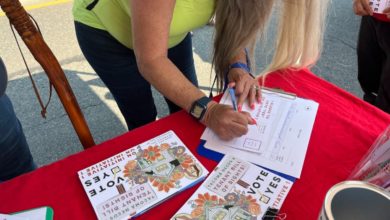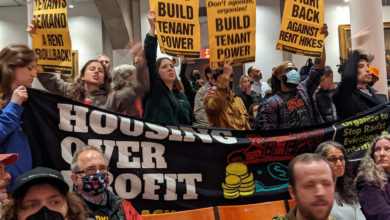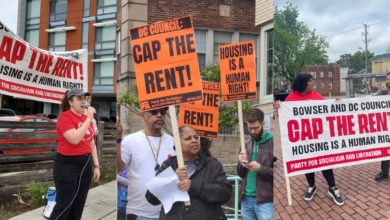On July 21, the ownership of the Philadelphia 76ers unveiled a new $1.3 billion plan to construct a new arena for the team. The proposed arena — 76 Place — would be in Center City at 10th and Market Street.
The 76ers are partnering with David Adelman, the billionaire CEO of Campus Apartments. This partnership with one of Philly’s most notorious gentrifiers is just one in a long line of attempts made by billionaires and developers to reconfigure the city to their liking, all the while erasing and pushing out its historically Black and otherwise multinational working-class communities.
The plan would require a portion of the Fashion District Mall, previously known as The Gallery, to be demolished, despite the $420 million project being completed only four years ago. That this project would bulldoze part of another development that had just completed its process a few years prior is another stark example of the mismanagement of the capitalist class, wasting resources and running roughshod over the city, ignoring the needs of its people in favor of maximizing profit at any cost.
In 2011, billionaire Josh Harris and an investment group, Harris Blitzer Sports & Entertainment, bought the 76ers franchise for $280 million. After this purchase, the team has seen greater and greater successes.
‘New Philadelphia’: A billionaire’s plan to reshape Philadelphia
Despite this recent success, Josh Harris and his partner for this project, David Adelman, have a harmful vision for the future of Philadelphia. Harris and his team have a disdainful view of the city’s current blue-collar identity. This stadium plan is part of a wider process of creating what Harris and his team call “New Philadelphia,” a vision for the city that caters to the ruling class and wealthy residents while erasing the proud working-class history of the city.
A recent 76ers jersey design is one example of this cultural offensive against Philly’s Black, working-class roots. After years of demands by the fanbase for a black jersey hearkening back to the widely celebrated Allen Iverson era, the ownership instead released a controversial black jersey featuring Boathouse Row. Boathouse Row, while certainly a landmark of the city, is a location associated with the rich, white elite of Philadelphia, and its suburbs. This design is a far cry from the jerseys worn by one of the sport’s and the city’s most iconic players during the 2001 NBA Finals, the last time the team made it to that level. President of the team, Chris Heck, justified the decision by admitting that their team strangely doesn’t even use the term “Philly,” and demeaning the city’s identity by pushing the term ‘New Philadelphia’ instead.
“New Philadelphia” is a billionaire’s for-profit vision of what Philadelphia could be, and the 76 Place proposal is a perfect symbol of this. While the ownership has chosen to cash in on the city’s sporting legacy by releasing a “Spectrum”-themed jersey last season, they are abandoning that legacy by pushing forward with this new stadium. They are leaving behind South Philly’s Sports Complex, which includes infrastructure designed to transport fans from all over the city and the surrounding region to its storied stadiums, and are instead choosing to drop more than a billion dollars on an unnecessary stadium right in the middle of one of the poorest big cities in America. In their statement, the ownership seemed to check all the boxes when it comes to progressive language, with talks of environmental sustainability and “preserving the culture and identity of surrounding communities.” However, by working with David Adelman, one of the leading figures in the push to gentrify West Philly via the development of off-campus housing, the owners are showing their true colors.
Chinatown residents fight displacement once again
Furthermore, interviews with Chinatown residents and Asian-American organizers who live just blocks away from the proposed site show that the 76ers have not followed through on their promise of including surrounding communities. In an article released by WHYY, organizers from Asian Americans United and Southeast Asian Mutual Assistance Associations Coalition revealed that the community in Chinatown had not been consulted during the preliminary stages of the development process. Thoai Nguyen, the CEO of SEAMAAC, revealed that the organization is planning to organize against the proposal. This stadium is yet another unwelcome development plan for Chinatown residents, who have seen their neighborhood constantly under attack throughout the history of the city. The possibility of their community being erased by rising prices and unwelcome developments has been especially threatening in recent years. For example, Chinatown residents have organized themselves to fight against a proposal made by Adelman to develop a casino in the same area and other intrusive projects such as plans to build a highway on top of the immigrant community.
The city of Philadelphia and its residents have faced unimaginable hardships these past few years: from the COVID-19 pandemic and its economic effects, to well-documented instances of police brutality during the George Floyd Uprisings of 2020, to the opioid epidemic which plagues the city, to a record number of homicides that is still climbing at this very moment. Despite these hardships and its painful status as the poorest big city in the United States, Philly is still a city full of pride and passion, especially towards its sports teams who continue to receive the full brunt of their fanbase’s support, win or lose.
This stadium proposal is nothing but another attempt made by the capitalist ruling class to price out the city’s ills, and its working-class community along with it, instead of actually addressing their root causes. The ownership’s vision of a “New Philadelphia,” with its out-of-place houses made of sheet metal and plywood and its derision of the city’s history, is ultimately a for-profit vision of the city that does not benefit its people. The people must join together to fight these billionaires’ attempts at treating the city like their personal playground because our pride, our culture, and our history are at stake.





